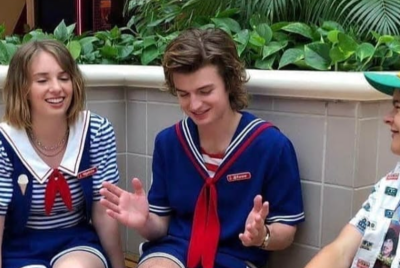The Great Meme Reset: What to Expect and Leaks Revealed So Far
The Great Meme Reset is coming in 2026 — leaks reveal what memes are returning and what to expect from this internet revival.

Memes are on the brink of a digital revival—a full 'reset' aimed at purging brain‑rot and bringing back the classics.
A Nostalgic Rewind for Meme Culture
The Great Meme Reset is an internet movement planning to mark 1 January 2026 as the day to return to the early‑2010s golden age of memes.
According to Wired, this is more than a reboot—it is a rewind: AI-driven, low-effort memes are out, while Big Chungus, Nyan Cat, and other retro favourites are in.
The movement reportedly began on TikTok with a March 2025 video by user @joebro909, joking about wiping every meme to rescue the platform from a 'meme drought.'
Why the Reset Is Happening
Participants argue that many recent viral formats lack meaning. One TikToker explained:
'The memes we have now are called 'brain rot' for a reason ... The ones 10+ years older ... at least made sense.'
Experts agree that nostalgia isn't the only driver. Don Caldwell, editor-in-chief at Know Your Meme, described current trends as 'low-effort and nonsensical,' highlighting a desire to return to more substantive meme formats.
Leaks and What to Expect
Leaked plans indicate the Reset will revive pre‑2025 memes, including Ugandan Knuckles, Rage Comics, Advice Animals, and MLG Montage Parodies.
TikTok creator @golden._vr pinned down a symbolic moment in a popular video:
'The last resort for memes ... The Great Meme Reset. December 31st, 2025, 11:59. Memes are rising from the grave.'
Some Reset advocates plan a symbolic return to 1 January 2016, widely regarded as the peak of meme culture.
Movement or Meta-Meme?
Debate continues over whether the Reset is genuine or a meta-meme about meme culture itself. Ryan Milner, a communications professor, asked whether it is 'an earnest longing ... or just people having fun with the idea.'
Forbes noted that while many treat the Reset as a cultural reboot, some see it as satire—a commentary on how fast and chaotic meme trends have become.
Potential Impact on the Internet
If successful, the Reset could be a rare moment of collective nostalgia, replacing current trends with more structured memes.
The Daily Dot reported that proponents view current trends as 'content pollution' and hope to 'clear away the current trending formats and start fresh.'
Critics remain sceptical, with many arguing that controlling memes is impossible, and even supporters admit uncertainty about the Reset's longevity beyond January.
How Creators and Platforms Are Reacting
Early responses from content creators show a mix of excitement and scepticism. Some meme pages are already teasing throwback content, while others warn that the Reset might be impossible to enforce.
Platforms like TikTok have not officially endorsed the movement, but trending hashtags show that users are actively engaging with the idea.
'It's fascinating to see the internet collectively looking backward...but can it really be controlled?' said a digital culture analyst at The Verge.
What to Watch For
Will TikTok and other platforms truly repost classic memes on 1 January 2026? Will this fleeting nostalgia become a lasting shift in meme culture? How will creators respond—embrace it or ignore it entirely?
Whether the Great Meme Reset succeeds or fades as a cultural experiment, it reflects a generation eager to reclaim a more human, less chaotic internet. On New Year's Day 2026, millions will be watching to see if it actually happens.
© Copyright IBTimes 2025. All rights reserved.





















